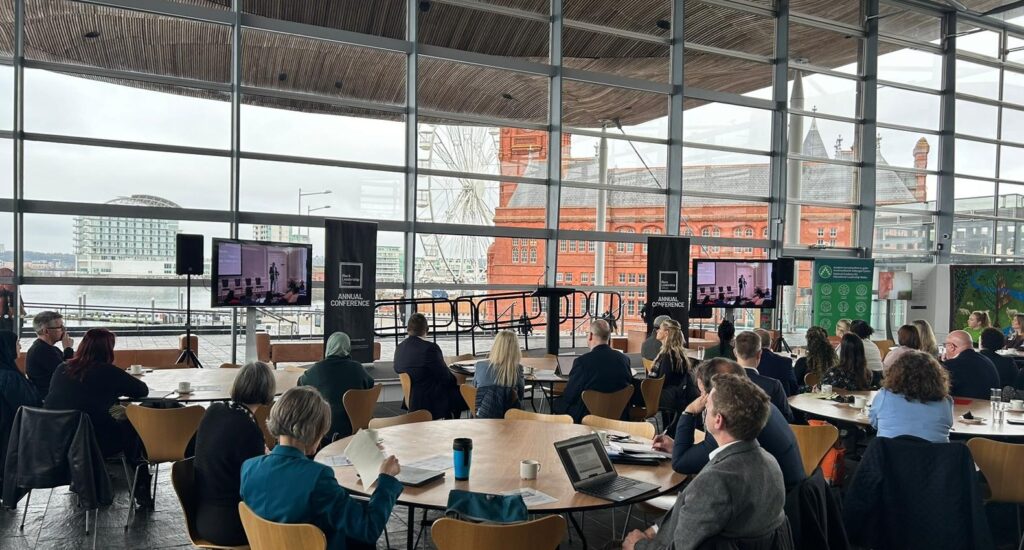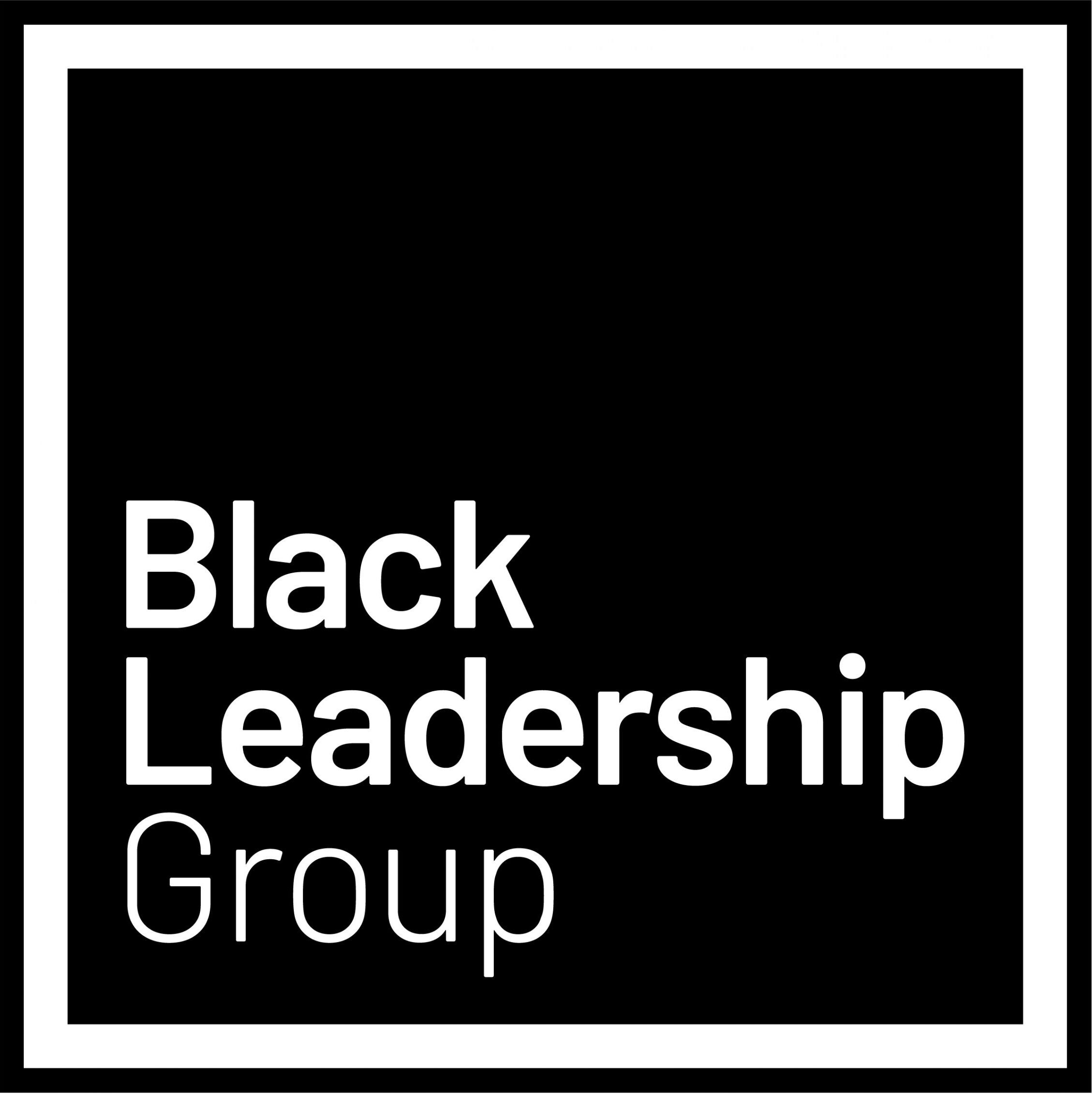Hundreds take part in UK-wide multi-venue conference on anti-racism
Posted on Mar 21st, 2024

The message was loud and clear: urgent, societywide action is needed right now to tackle systemic racism in the UK.
Against a backdrop of headlines on racism in public life and mounting evidence of racial disparities in education and the workplace, anti-racism took centre stage today (Thursday, 21 March 2024) at a conference staged simultaneously at five linked venues UK-wide and virtually.
More than 300 people gathered in Belfast, Birmingham, Cardiff, Edinburgh and London, and online, for the influential Black Leadership Group’s conference, Tracks, Trails and Threads: Courageous Leadership in a Fractured World. Wales’ brand new First Minister Vaughan Gething MS, the first Black leader of a European nation, co-sponsored the event at The Senedd in Cardiff with Cardiff and Vale College (CAVC).
Sponsored nationwide by Google for Education and Institute of Directors (IoD), the hybrid event drew renowned campaigners and experts on anti-racism from across the sectors, including the opening keynote speaker and founder of Operation Black Vote (OBV), Lord Simon Woolley of Woodford.
Speaking at the IoD in Pall Mall, London, Lord Woolley, now Principal at Homerton College, University of Cambridge, said: “This is only a special place if we use all the talent in this room, all the energy, all the desire for wanting a better world. It’s really time for us to come together as never before. It’s for you to show leadership. It’s for you to come out of the shadows. Be the you that you want to be. The strongest you. Leading a life in which you can say ‘I played my part’. I made a difference.”
The high profile event, timed to coincide with the UN’s International Day for the Elimination of Racial Discrimination, aimed to bring together people in-person, in each nation of the United Kingdom, to discuss and shape actions for achieving an anti-racist society. Lord Woolley’s inspirational keynote and the panel discussion that followed, with Chartered Management Institute CEO Anne Francke OBE, DARPL (Diversity and Anti-Racism Professional Learning) Founder Chantelle Haughton and Conference Chair Robin Ghurbhurun from Jisc, were streamed to the other venues and online and they ignited a day-long debate.
IoD Director General Jonathan Geldart took the floor to assert the Institute’s commitment to lead in shaping a more diverse organisation and membership. Keynote addresses followed at each venue by local leaders on anti-racism, and online by prominent activist and campaigner Dr Elizabeth Henry.
Either side of a provocative keynote on the impact of AI on racism by Professor S. Craig Watkins, of the University of Texas at Austin, workshops were convened involving all attendees for face-to-face or online discussions.
In programmes shaped by BLG Director Stella Mbubaegbu CBE, topics discussed at conference included:
- the making of an anti-racist virtual world, with Yusuf Ibrahim, Assistant Principal at CAVC, and Co-Chair, Black Leadership Group Wales
- BLG’s Ethnic Equity in Education (EEE) campaign to narrow the stark gaps along ethnicity lines in staff representation and student attainments
- an ethnic representation index for higher education, developed by Birmingham keynote speaker and Birmingham City University (BCU) Vice-Chancellor Professor David Mba
- racial issues in the education system
- nurturing the Black talent pipeline across Scotland
- how to become an anti-racist college of further education
- the launch at conference of an anti-racist toolkit for high education
- organisational ally-ship, from system scanning, strategy development to leading by example
- A national approach to anti-racist professional learning in schools and early years settings in Wales
- the Mayor of London’s Design Lab programme, an initiative to ‘infuse anti-racism and equity, diversity, and inclusion practices into the heart of London’s economic activities’
- the story of the City of Doncaster’s Ethnic Culture Fusion Network (ECFN)
Speaking at Birmingham Conservatoire at BCU, BLG Director Robin Landman OBE said: “We wanted to challenge the revisionist narrative that has been developing for the past year or more that there is no issue with systemic racism, but we also wanted to deliver a positive message about the progress being made. The standard of the debate has been very high, with perspectives from local leaders about what their challenges are but also the leadership they are demonstrating.
“We had a really inspiring keynote from Lord Woolley and the debate there about the importance of individual leadership and courage. Not reckless leadership, but leadership that presents a positive narrative. We wanted to bring people together as a platform of progress on anti-racism and we’re delighted with the response today.”
Attendees also joined the conference at The MAC in Belfast and Dynamic Earth in Edinburgh, with local keynotes from, respectively, Belfast Met Chief Executive Louise Warde Hunter and international consultant and executive coach Professor Gus John. Professor Uzo Iwobi, Founder and CEO, Race Council Cymru, and Marcus Ryder MBE, Chief Executive Officer at The Film and TV Charity, delivered the local keynotes in the morning in Cardiff and London, respectively. Dr Elizabeth Henry delivered the keynote online.
Initial take-aways were shared in a ‘Eurovision-style’ link-up from all the venues and online before conference close. We need real data and measurement of performance on anti-racism, said Cardiff. Greater collaboration is needed to increase the pace of progress, said Belfast. More courageous leadership is vital – and where it happens, we must showcase it, said Edinburgh. We need to have anti-racist conversations in schools, said Birmingham. We must move away from the deficit model of addressing racism, said London.
A full report will be published on the conference, covering all learnings, calls to action and next steps. In closing, the Conference Chair, Robin Ghurbhurun, told attendees: “I have seen a day of courageous voices. Walk the talk in the belief you are not alone.”
For more information about the Black Leadership Group, visit https://blackleadershipgroup.com/
